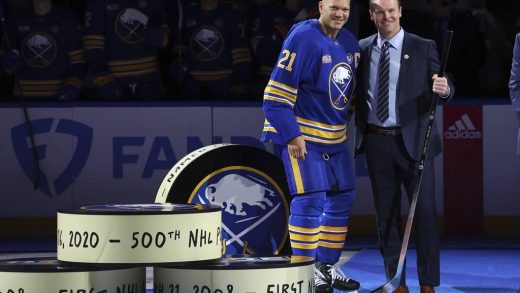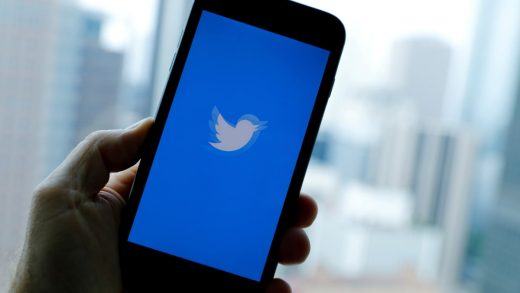This week a state of emergency was declared due to staff shortages in the Winnipeg Police Service.
During the first week of 2022, nine per cent of all police personnel were on COVID-related leave. This meant officers from gang and community service units were redeployed and WPS Chief Danny Smyth publicly pondered reducing daily shifts from three to two.
This is nothing to panic about — but requires non-profit organizations, groups like the Bear Clan and Mama Bear Clan, and volunteers to shoulder a bit more of the burden of keeping our communities safe.
THE CANADIAN PRESS FILES/Sean Kilpatrick
Cindy Blackstock and the Assembly of First Nations first filed the complaint to settle the harms and rectify child welfare on First Nations in 2007.
A First Nations children’s advocate says provinces and territories are avoiding their responsibility when it comes to the 2016 ruling from the Canadian Human Rights Tribunal which said the federal government discriminates against Indigenous children. Cindy Blackstock, Executive Director of First Nations Child and Family Caring Society holds a press conference regarding First Nations child welfare in Ottawa on Thursday, Sept. 15, 2016. THE CANADIAN PRESS/Sean Kilpatrick
This has been the state of health care for almost two years, with thousands of surgeries and procedures cancelled or postponed and services rerouted or sent out of province. Caring for those who needed medical help has fallen to friends or families.
Police and health care aren’t the only services challenged recently. The Winnipeg Fire Paramedic Service announced that five per cent of its staff are off due to COVID-related illnesses.
We’re at the widescale deterioration of public services stage of the COVID-19 pandemic.
Or, welcome to a small taste of what it’s like to live on a First Nation.
Just be glad you still can drink water from the tap here.
In the same vein, this past week also saw a remarkable, landmark agreement to settle the harms and rectify the situation of child welfare on First Nations. After nearly a decade and a half of legal fighting, hundreds of thousands of First Nations children who were forced into the child welfare system due to a lack of basic infrastructure and services — a situation created by Canada’s impoverishment of Indigenous families and communities — will be compensated $20 billion.
Another $20 billion will be allocated to rectify the situation, and provide Indigenous families with adequate health and family support systems — or what Canadians experience.
When advocate Cindy Blackstock and the Assembly of First Nations first filed the original complaint about this issue in 2007, compensation and new infrastructure probably would have cost a few hundred million.
Due to consecutive federal governments fighting this claim in court, it’s now $40 billion.
When basic, functional and well-funded public services aren’t available, it’s children and families who suffer the most.
Think about that this week while the provincial government considers whether to send our children back to school on Monday, Jan. 17.
Also think about it as nearly a dozen Manitoba First Nations enter another series of community lockdowns as they battle COVID-19 outbreaks.
As said many times in this column, the lack of basic infrastructure and poverty created by the Indian Act creates a perfect storm for outbreaks of COVID-19.
A recent study by two of my University of Manitoba colleagues showed that infection rates on Manitoba First Nations are as high as 10 times the provincial rates.
The Omicron variant is proving this fact more than ever. This week over half of Manitoba 63 First Nations reported skyrocketing positive cases with 10 in various states of lockdowns, travel restrictions or states of emergency.
The actual number of positive cases on First Nations — as it is everywhere else — are impossible to know due to testing delays and the lack of rapid test availability.
But, outbreaks are evident, occurring even in communities that have had barely any cases the entire pandemic, like Manto Sipi Cree Nation which reports 64 positive cases, or nearly 10 per cent of the community.
In Nisichawayasihk Cree Nation, 80 homes are in isolation, or a third of the community.
In Pimicikamak, the nursing station has lost nearly two-thirds of their staff.
In most communities, basic services like policing, fire and paramedic, and health services aren’t available, so volunteers (or what we lovingly call “aunties” or “uncles”) do this work.
Would you be willing to patrol your neighbourhood to protect your community?
Would you help put out a fire or drive a person hundreds of kilometres to a hospital?
Would you be willing to enter an infected person’s home to administer medicine?
That’s happening everyday on First Nations. And almost no one is being paid.
With vaccination, the chances of being hospitalized with COVID-19 are significantly decreased. Unfortunately, with 18 per cent of Manitobans refusing to get a shot, the chances of our health-care system being overrun by serious cases is more and more possible.
In fact, we are already seeing the deterioration of services — a reality that will demand we all pick up the work of keeping our communities safe, secure and healthy.
The coming months may see all of us do a little bit more for our neighbours, friends or becoming a new auntie or an uncle to someone.
Then, when we get out of this pandemic, we need to take seriously the chronic racism that puts certain communities at risk or face the reality of paying for it with billions of dollars later.
Or, costs our lives.

Niigaan Sinclair
Columnist
Niigaan Sinclair is Anishinaabe and is a columnist at the Winnipeg Free Press.


